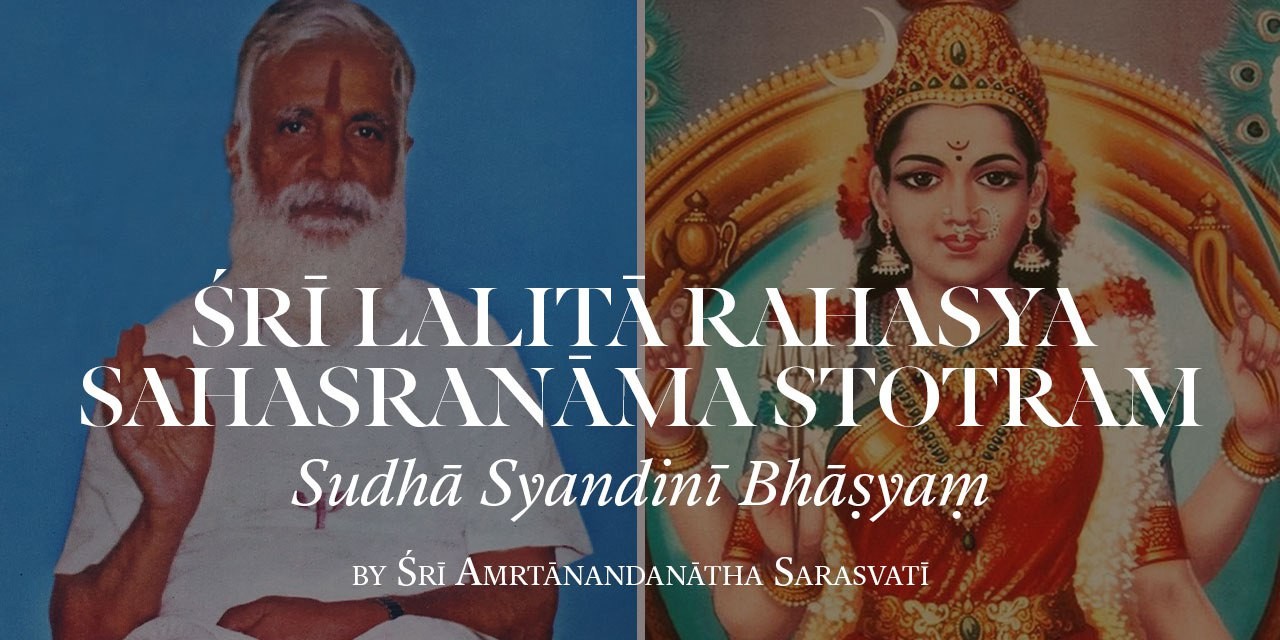
112. Bhavānī
Devi is called Bhavānī. “Bhavani Bhoda Samāya” so says the śruti. This means the word Bhavānī is used to describe Devi when She is in a state of enjoyment. The nature of this enjoyment is specifically the name itself. The word bhava means this world. The letter ‘ni’ stands negation of this world. So the nature of this enjoyment is in the negation of this world by becoming the world itself. Also, the word Bhavānī can be split up as Bhava + āni. Bhava is the name of Śiva, here the Supreme Brahman. The verb āni means ‘I become’. So Bhavānī means 'I am Brahman' or it is equal to the statement ‘Ahaṁ brahmāsmi’.
Adi Śaṅkarācārya in the sacred text of Soundalya Lahari has spoken the verse starting with 'Bhavāni tvaṁ dāse mayi vitara dṛṣṭiṁ sakaruṇāṁ', which goes like this. The devotee starts praying to the Mother. Oh Bhavānī, please send your gracious look like compassion towards me. The Devi starts hearing this prayer. By the time the devotee has finished saying Bhavānī, Her compassion is such that She has given the devotee an identity with Herself called sāyujya. Śaṅkarācārya uses this Bhavānī very cleverly because the word implies ‘Ahaṁ brahmāsmi’ a Mahāvākya from the Ṛgveda.
The Devi is intimately pleased and assumed an identity with the śiṣya because the śiṣya has made a statement of identity with the Guru. Such is the nature of enjoyment, of becoming identical with the object perceived, where no desire for the object perceived can exist, because it is oneself. It is not natural for anyone to desire oneself.
Source: Śrī Amṛtānandanātha Sarasvatī "Sudhā Syandinī Bhāṣyaṃ" Typed Manuscript
(an incomplete commentary on Lalitā Sahasranāma)

